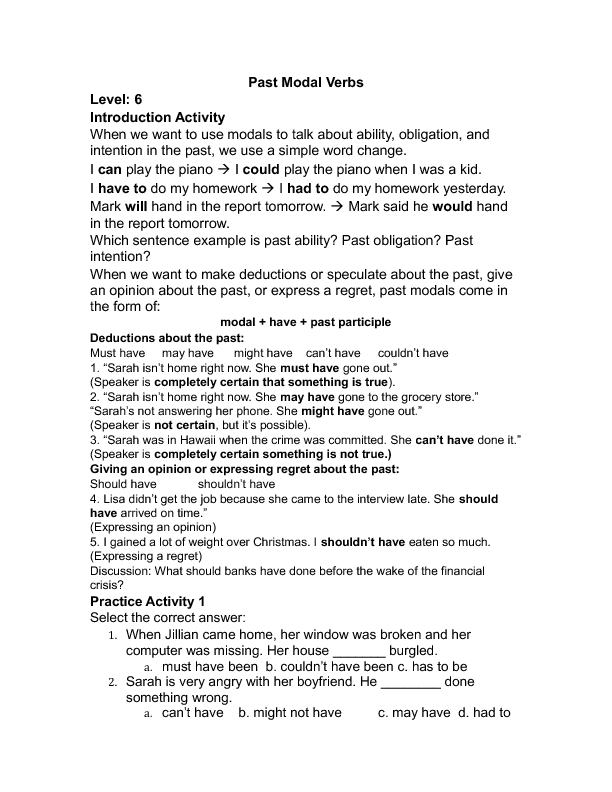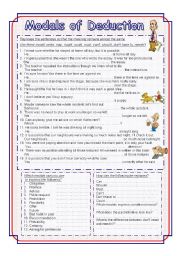
We use must when we are sure about something that happened in the past. To make deductions about the past we need to use modal verbs (must, might/may and can´t)ġ. They might have used the car without my permission. Subject + Modal verb + have + past participle verb + object To write sentences making deductions about the past we use the following form: > Double-click on words you don't understand > Similar tests: - Placement test beginners: Check your spelling - Past simple or present perfect - Although / in spite of / despite - Differences between Like and As - Again/ back - FOR and its use - Do or Make? - Do-don't-does-doesn't > Other English exercises on the same topics: Frequent mistakes | Modals I shouldn’t have gone out last night now I’m too tired to study.Learn English > English lessons and exercises > English test #116634: Making deductions about the past You should have studied more! If you had, you would have passed your exam. We use “should have” + a past participle to express regret or to tell someone off. I could have stayed out longer! Should have + past participle I didn’t know my parents would be asleep when I got home. You could have gone to university but you decided to work instead.

We use “could have” + a past participle to indicate that someone had the ability or chance to do something but did not do it. Jacob and Claire might have arrived at the party already, but they haven’t called me so I’m not sure. Sarah might have lost her way she should be here by now. We use “might have” + a past participle when we are not sure about something but we think it was possible. Kevin must have been worried when he lost his car keys at the party. You must have gone to bed late you look tired! We use “must have” + a past participle when we are quite sure about something or we can see the evidence of something.

When we use a modal verb to talk about a situation where we are not expressing a fact but we are using deduction, the form is MODAL VERB + have + past participle.

Now that you’ve refreshed your memory, let’s take a look how to form and use modal verbs in the past. You can find out more about that by reading this post on the ABA English teachers’ blog. These modal verbs of deduction in the past are often confusing and difficult to remember, but with a little hard work and practice, you will learn how to use them correctly!įirstly, it’s important to remember what modal verbs are and why they are used. Today we are going to look at modal verbs of deduction and speculation in the past.


 0 kommentar(er)
0 kommentar(er)
